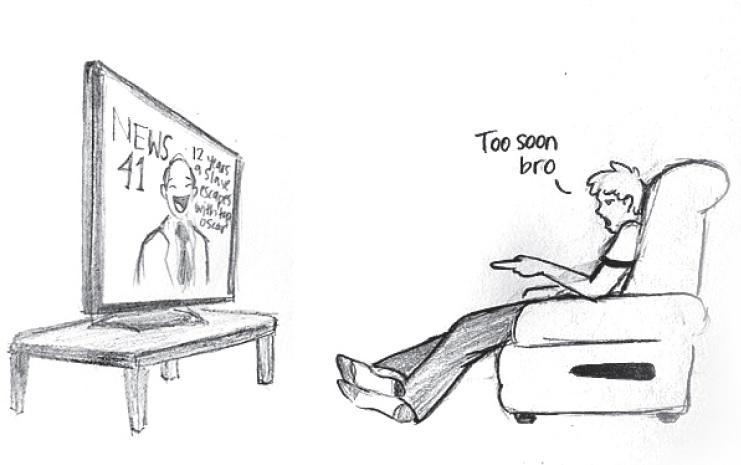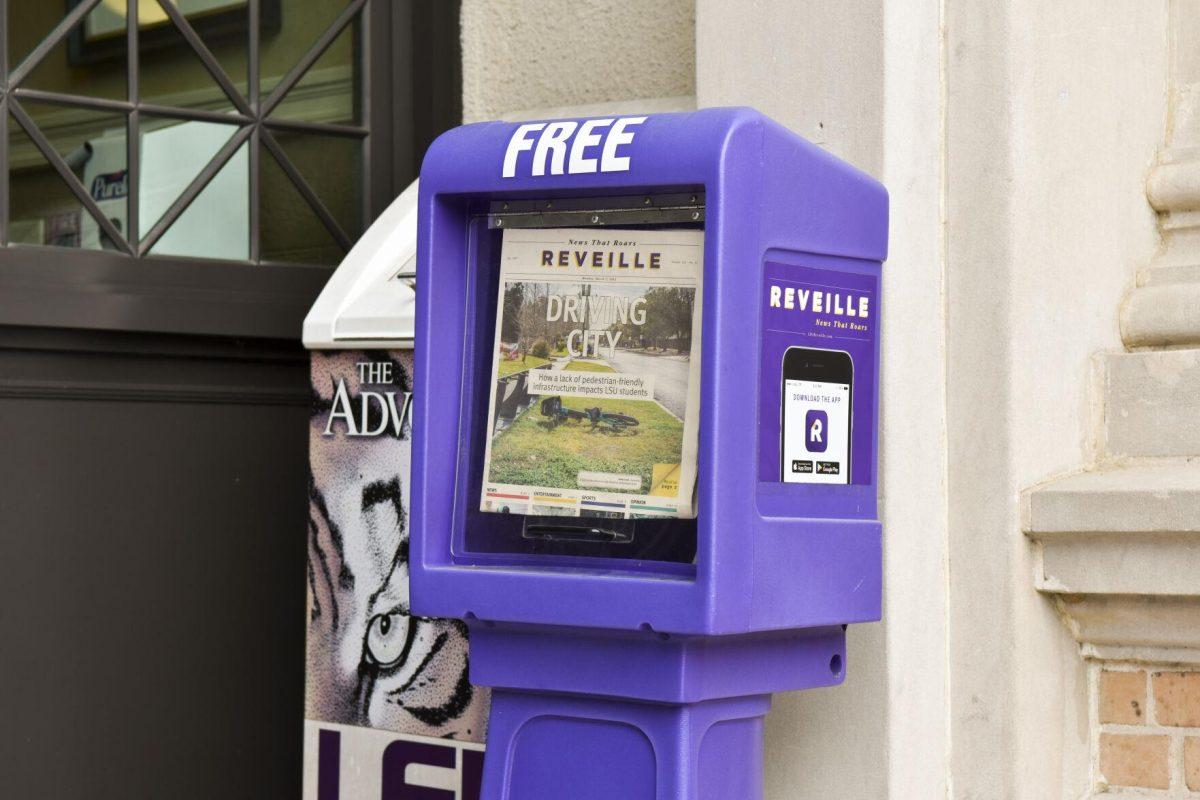Newspaper headlines are a thing of mystery. Puns, snarky remarks and information all jumbled into a six or seven-word title.
Some “clever” headlines are harmless and corny. The Advocate’s headline for a review of the film “Non-Stop” reads, “‘Non-Stop’ flies on cruise control.” There’s a play on the film taking place on an airplane, and it foreshadows the review’s content.
However, last Monday’s newspapers couldn’t stop themselves from making cracks at the oh-so-funny topic of slavery.
At the 86th Academy Awards, the Louisiana-filmed “12 Years a Slave” took home the highest honor – Best Picture.
Instead of celebrating the first ever Best Picture winner directed by a black man, newspapers across the country decided to take the film’s serious subject matter a little too lightly.
Two glaringly offensive headlines read “‘Slave’ becomes master” and “‘12 Years a Slave’ escapes with top Oscar.”
While these types of pun-filled headlines might be appropriate for other films that don’t tackle such a sensitive and somber subject, we should not have to say that slavery jokes should be retired.
I don’t recall this type of mockery when Holocaust or World War II-related films have taken away numerous Oscars. There were no jokes about “Schindler’s List,” “Saving Private Ryan” or “The Pianist.”
Interestingly enough, a journalist and psychologist have recently discovered the amount of time that needs to pass before something tragic can be appropriately joked about. Scientifically speaking, a joke can actually be made “too soon.”
Research found “tweets about Hurricane Sandy to be least funny 15 days after it struck, most funny 36 days after the fact and once again not funny 99 days later.”
The problem with these “12 Years a Slave” jokes, though, is that slavery and the subsequent oppression of black people and other people of color is nowhere near over. Therefore, there is never going to be an appropriate time for this type of insensitivity.
The media are responsible for harvesting public opinion and general attitudes toward certain subjects. It’s the media’s job to be respectful of the topics they cover. I don’t want to read a headline that sounds so offensive that I have to double-check that I’m not reading The Onion on accident again.
While many may think a few cracks about a slavery movie are inoffensive, it’s crucial to realize how influential the win for “12 Years a Slave” is.
Best Supporting Actress winner and “12 Years a Slave” star Lupita Nyong’o said she was inspired to be in films when she saw Oprah Winfrey and Whoopi Goldberg in “The Color Purple.” Goldberg, in turn, saw Nichelle Nichols portray Lieutenant Uhura on “Star Trek” and realized she, too, could be an actress.
Nyong’o’s Cinderella story has great potential to influence several other young black women to follow in her footsteps.
Entertainment is an important factor in the development of America’s attitude toward race, gender and sexuality. Not only is it influenced by our current perceptions, it influences them as well.
The media should be smart enough to notice the significance of events like these. Making light of serious and important events, even if they are only in less-respected fields like entertainment, is rude and minimalizes their power.
Would these same newspapers print headlines like “Crimea River” during the conflict in Ukraine? Probably not.
SidneyRose Reynen is an 18-year-old film and art history freshman from New Orleans.
Opinion: ‘Punny’ headlines can cross the line
March 10, 2014
More to Discover








